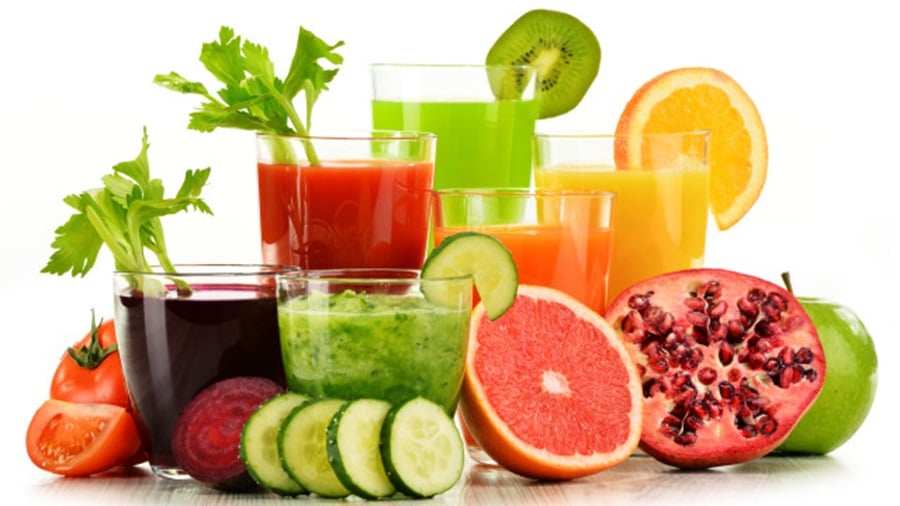Contents
It’s long been known that many environmental factors play a part in the likelihood of developing cancer. These factors range from the air we breathe to the habits we pick up and even the food we eat. Carcinogens are substances that contribute to the risk of developing cancer. We most commonly associate them with tobacco and asbestos insulation, but carcinogens can also be found in our refrigerators and on our plates. You may be surprised by some of the foods you regularly eat that are known to cause cancer within the confines of the human body. Don’t be surprised if you’ve unknowingly enjoyed every item on the list.
1. Instant Macaroni and Cheese

The number one cancer-causing food on the list is Macaroni and Cheese. Although it might be the go-to comfort food for many, buying the boxed kits to make it fast and easy is a bad idea. These highly-processed options contain a lot of carcinogens. Instead, opt for a homemade version to reduce your carcinogen intake.
2. Canned Soup

When the soup is canned at the factory, several stabilizers, sugars, and starches are added to help preserve it for the long haul. Making homemade soup is a far healthier choice using fresh veggies and bone broth. It will probably taste better, too!
3. Store-Bought Bread

Buying bread at the grocery store increases your intake of hydrogenated oils and potassium bromate, both of which are known carcinogens. In fact, potassium bromate has even been outlawed in some countries because of its reputation as the number one cancer-causing food ingredient.
4. Toaster Pastries

Toaster pastries have long been advertised as a quick and easy solution to getting your kids to take breakfast on the run. From refined flours and sugars to other filler ingredients, though, they might as well be labeled “cancer bombs.” Steer clear as often as possible.
5. Fried Chicken
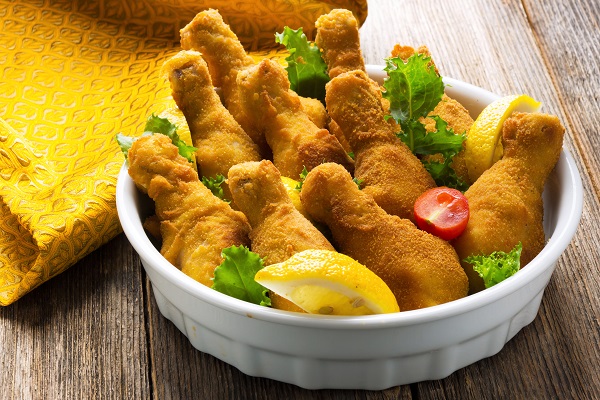
Carcinogenic chemicals form and multiply during high-heat cooking methods like frying. When frying a chicken, the object is to make it as crispy as possible, which means nearly burning the skin. According to some experts, the closer you come to burning food, the more carcinogenic chemicals it will release.
The problem here isn’t with the chicken itself but with the oil in particular. Avoid vegetable oils and trans fats in your chicken and stick with those fats humans have been cooking with for centuries safely, like beef tallow and lard. If you prefer something lighter, virgin coconut oil or palm oil are good choices.
6. Potato Chips
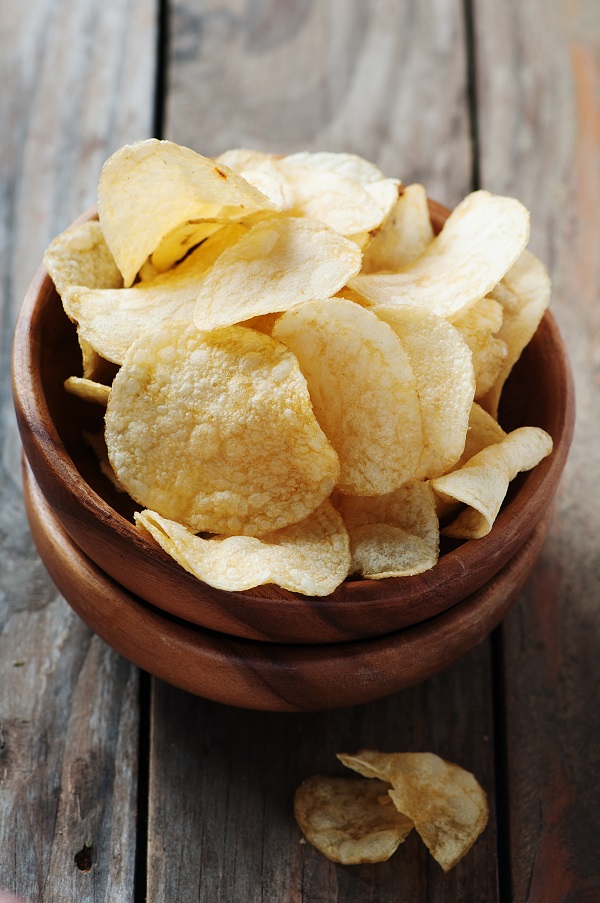
Not only are potato chips fried in typically carcinogenic vegetable oils, but they are also flavored and preserved using refined sugars and starches. This delivers a double or even triple whammy in terms of carcinogenic compounds found within the chemical makeup of this popular snack choice.
7. Deli Meat

Deli meat is processed using nitrates. In a 2015 study by the World Health Organization, every 3.5 ounce serving of deli meat consumed per day increased the daily risk of colorectal cancer by 12%. Other studies conducted by the same organization in 2018 stated that processed meats could also be partially responsible for increasing breast cancer cases in America.
8. Bacon

Bacon has more nitrates than any other meat on the market. It also contains a non-negligible amount of sugar in some cases. That said, bacon can be very good for you as long as you choose low-sugar varieties with no added chemical nitrates. Be sure to cook your bacon to crispy but never to the point that it starts smoking–once the fat begins to smoke, its chemical compound has changed for the worse.
9. Hot Dogs
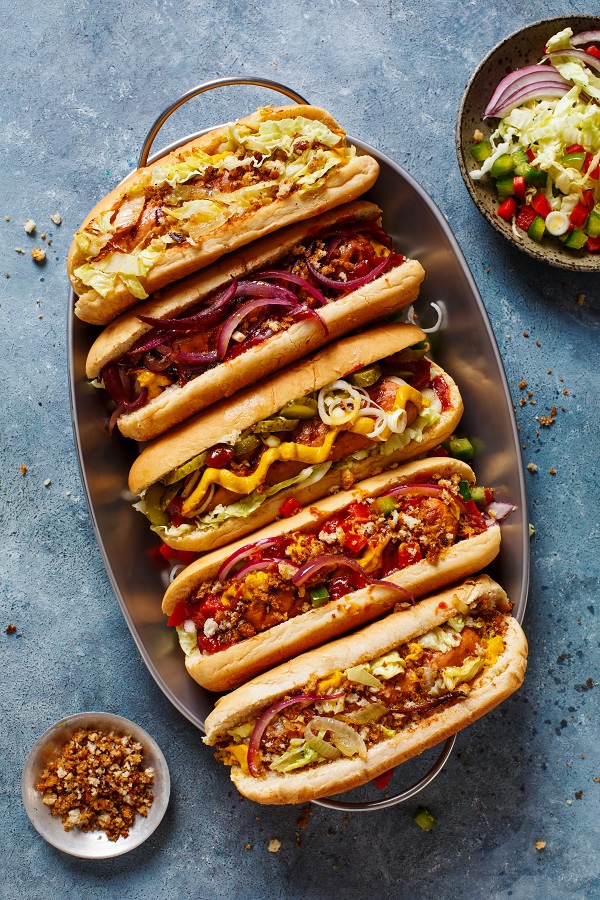
Not only are hot dogs technically a processed meat, but they are also a part of that super ultra-processed food category that we discussed under the Mac and Cheese heading. Now take into account that we often grill them over high, rapid heat, and it’s not surprising they’re one of the most cancer-causing foods available. Enjoy these sparingly and look for all-beef or all-chicken versions with no added chemicals or flavorings.
10. Candy
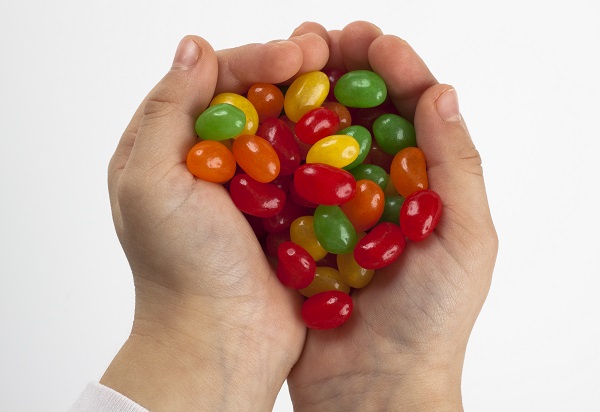
Most candy is sweetened using high fructose corn syrup. This syrup is metabolized quickly into our bodies and most often goes straight toward the cancer cells that already exist within us. A treat now and then is okay, but don’t over-indulge, and look for those that use sugar instead of corn syrup.
11. Juice

Because juice is often associated with fruit, most are surprised to learn that it is nowhere near healthy. Juice lacks the fiber that we find in fruit and is usually pumped full of sugar and other sweeteners. You’re better off getting your required fruit serving from eating an actual apple or pear than you are reaching for a bottle.
12. Pancake Syrup
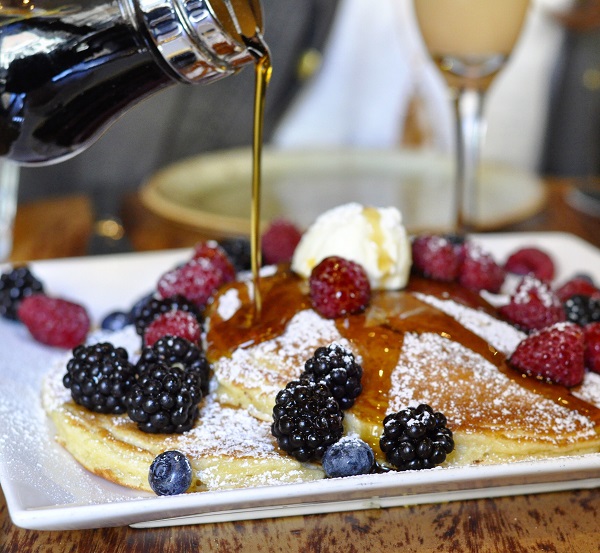
Most pancake syrup is not true maple syrup. It may contain some trace materials and be artificially flavored to taste like the real thing, but it’s usually almost entirely high-fructose corn syrup. This makes it a far less healthy choice and much more likely to turn into cancer risk over time. Stick with the real thing!
13. Energy Bars
Energy bars are another shocking addition to the list. Most people enjoy them as a viable alternative to candy bars and a healthier choice for a sweet treat. They’re usually not much better for you, though, if at all thanks to all the refined carbohydrates and sugar.
14. Ketchup
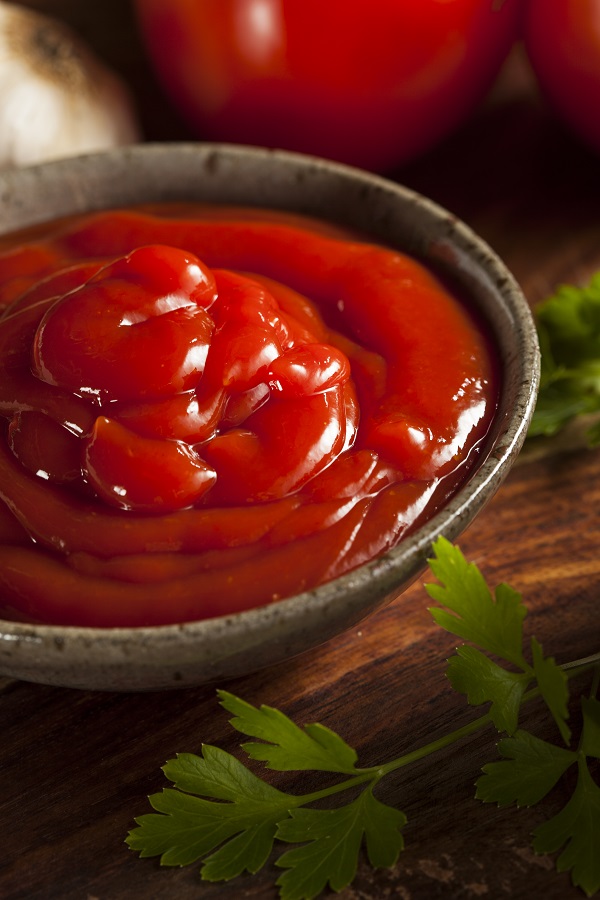
Making your own ketchup at home is one way to avoid the high carcinogens found in the store-bought variety. High fructose corn syrup and other sweeteners also make the red bottles on the store shelf a risky choice. When making ketchup at home, you can be more sure about what and how much goes into it.
Dietary Changes Go a Long Way
Studies have shown that simple changes over a prolonged period of time can make a tremendous difference in the long haul. When planning meals and preparing our diet plans, doesn’t it make sense to do what we can now before it’s too late? For more information, keep up with Aging Healthy Today.


